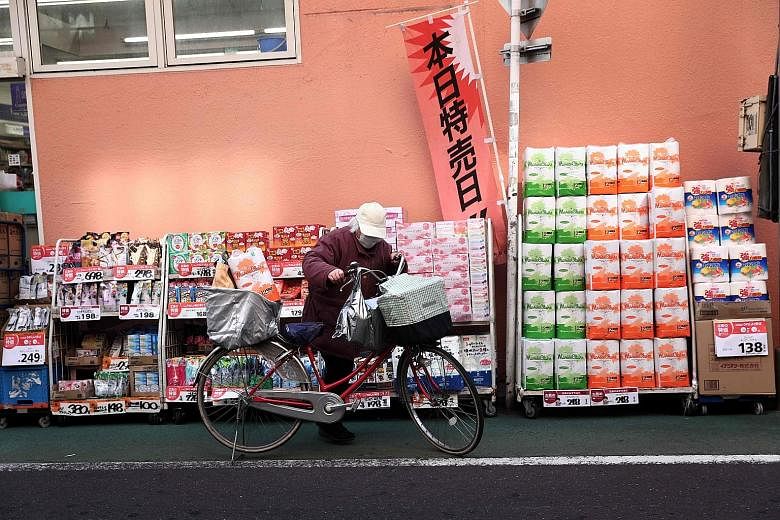TOKYO • Bank of Japan (BOJ) Governor Haruhiko Kuroda has said that an uptick in inflation towards 1 per cent will not immediately trigger an interest rate hike, signalling that Japan will stick to its ultra-easy policy even as other major economies eye withdrawing stimulus.
As was widely expected, the BOJ yesterday maintained its pledge to cap long-term interest rates around zero. The move was in stark contrast with the United States Federal Reserve's decision, hours earlier, to hike interest rates for the second time in three months, in an effort to return policy to a more normal footing.
But Mr Kuroda made it clear that the BOJ would not follow in the Fed's footsteps any time soon, saying that Japan still needed massive monetary support, with inflation distant from the bank's 2 per cent target and risks to growth skewed to the downside.
The BOJ kept its short-term interest rate target of minus 0.1 per cent as well as a pledge to guide the 10-year government bond yield at around 0 per cent. It also kept intact a loose pledge to maintain the pace of its annual increase in Japanese government bond holdings, which is 80 trillion yen (S$989.6 billion).
Japan's long stagnant economy has shown signs of life in recent months, with exports and factory output benefiting from a recovery in global demand. Core consumer prices rose for the first time in more than a year in January and analysts expect them to continue to pick up slowly but steadily.
That has led to a dramatic shift in market expectations, with a majority of analysts polled by Reuters predicting that the BOJ's next move would be to start scaling back its ultra-easy policy.
A rising global tide of protectionism is adding to concerns for Japanese policymakers, given the economy's heavy reliance on exports and free trade.
US President Donald Trump has accused Japan of using "money supply" to weaken the yen and give its exports an unfair trade advantage.
Mr Kuroda stressed that the BOJ's easing was aimed at beating deflation and that interest rate differentials between Japan and the US alone would not determine currency moves.
REUTERS

